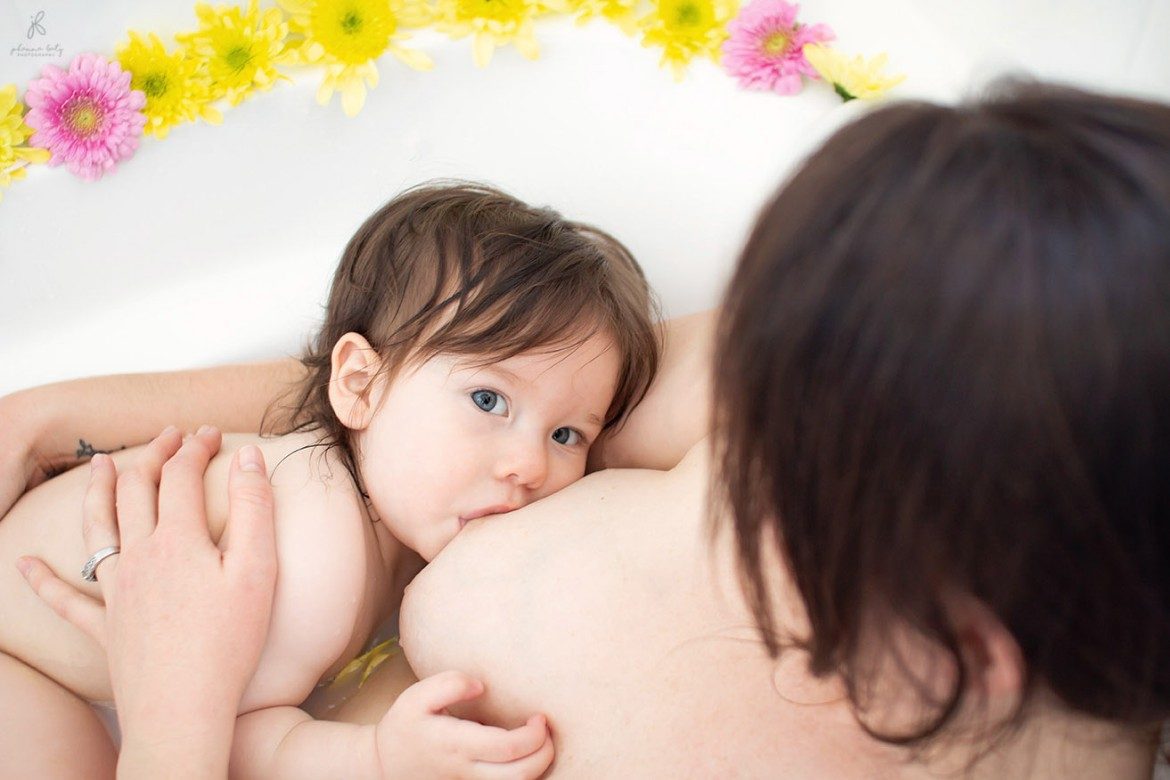By Emma Pickett
This article is focused on breast refusal that sometimes happens at around 8-12 months (although those ages are not set in stone). We often use the term “nursing strike” to describe this experience. Although the word “strike” is perhaps unhelpful as it implies this is a conscious decision on the part of the nurser, and you are presumably meant to meet some demands and then the strike will be over.
Trouble is, you usually don’t know what the motivation is and what the demands are.
It’s like a group of workers go on a strike and refuse to tell their employer what their issues are. They are picketing with signs that don’t have any words written on them. They are angry at meetings where no words are spoken. Do they need something to change? Have you done something they didn’t like? Do they want to leave the profession entirely? Who the hell knows!
A baby or toddler who previously breastfed happily and enthusiastically seems to have had a switch flipped and the breast has suddenly become their least favourite place to be. It can knock you for six. It’s incredibly confusing and distressing.
You can feel as though you are expected to switch into Sherlock Holmes mode at a time when you feel rejected and upset. Is it up to you to analyse what might have happened so you can find the solution? There is an element of that, but we’ll talk about that later.
First, it’s important to give yourself some space to acknowledge that this HURTS. Not so much physical, although you do have to be careful not to get engorged, as that might mean supply reduction and blocked ducts. This emotionally hurts. Feeding your child has been happening for several months and it is part of who you are. You may feel you are part of a community online and in real life, and that appears to have changed overnight. Your breastfeeding relationship with your child may be the core of how you connect with them. It’s far far more than milk. It’s how you soothe them, help them get to sleep (perhaps multiples times a night) and how you check in when the world seems big and scary (for either of you).
Although the word “strike” is perhaps unhelpful as it implies this is a conscious decision on the part of the nurser, and you are presumably meant to meet some demands and then the strike will be over.
That feeling of loss can be significant.
This is not simply about rejection. Your child seems to be a different person. They are no longer your partner in the breastfeeding relationship. They might feel like your adversary. You have spent months developing an understanding of your child. You KNOW them. You can read them. You communicate. And now your child feels like a complete mystery. They are rejecting milk, but it can feel like your understanding of your child has been rocked and they are rejecting YOU. For the first time, this person feels like a stranger.
And the act of trying to convince them to restart can feel ‘off’. Everything you’ve read says this is a strike and they are very likely to restart breastfeeding at this age. But then you’ve also absorbed deep in your soul that the ideal is ‘child-led’ and ‘responsive’ feeding. So, to try and trick them to do something their body seems to be rejecting runs counter to that instinct.
What might be going on? We’re not talking about an older toddler who has been winding down for a while: perhaps one or two feeds a day for ages. They may have skipped the odd day. Breastfeeding is not at the heart of their lives and they are clearly on the home stretch. We’re talking about a keen breastfeeder, who fed multiple times a day and has gone from several feeds to nothing literally overnight.
Sometimes the cause is obvious. They might have sores in their mouth from ‘hand, foot and mouth disease,’ a very common early childhood virus. They might have chicken pox or a mouth injury or oral thrush. They might be struggling with a tough few days of teething. They might have a cold and been blocked up and it’s a struggle to breathe when breastfeeding. If there has been a recent virus, it can be worth visiting the GP to rule out a lingering ear infection which can be the underlying cause of breast refusal.
It might be that they are reacting to a particular phase in your menstrual cycle. It’s not a universal experience, but sometimes fussiness can correspond to an imminent period, particularly the first one. It might also be that you are in the early stages of an unknown (or known) pregnancy. During pregnancy, some nurslings are completely unaffected and happy to continue throughout. Others are more sensitive to early hormonal changes and may even be affected in the first few weeks. They may also be less keen to feed when colostrum arrives during the second trimester (which will happen even if you are currently breastfeeding an older child). Lactose levels will drop which means less sweetness and some older verbal children even describe milk as tasting more like crisps (not a bad thing for everyone). Pregnancy may also mean a supply drop, again in the first few weeks for some. About 2/3 of pregnancies do seem to mean a reduction in milk supply. For some nurslings, that’s a deal-breaker. It might mean that some older children stop breastfeeding entirely. For some, it might mean more fussiness. Some may pause feeding for even a few weeks and then be keen to resume again after birth.
It might be that they are reacting to a particular phase in your menstrual cycle. It’s not a universal experience, but sometimes fussiness can correspond to an imminent period, particularly the first one.
If you look online for other causes of a nursing strike, you might see discussion of the baby reacting to a different perfume, soap or deodorant. I’m not convinced by this one as I’ve seen toddlers breastfeeding in a bath with a bath bomb, while holding a piece of cheese, upside down. I’m not sure devoting hours hunting for a new scent in the home is the best use of your time, but it may help you feel as though you are taking action and trying to control a situation where you feel helpless.
You may see discussion of a nursling reacting to visitors or a change in circumstances or increased stress. However some nurslings will react to all those things by breastfeeding MORE. I’m a bit concerned when I see articles discussing how the trigger might have been your return to work or the fact you have moved house or had a bereavement. It’s not like you can undo those things and we may get into a self-fulfilling prophecy where a parent’s anxiety about an imminent nursing strike could project onto the nursling. But perhaps knowing that it might happen may mean you are at least prepared for the possibility.
Sometimes a biting incident may have been the trigger. This is an age where a child may experiment with teeth at the breast, or adjust their latch as new teeth come in. If you get a shock when a child unexpectedly bites and yelp loudly, this may cause them to be wary of coming back to breast. This can feel AWFUL because you can clearly see how your reaction has freaked them out and you can feel entirely responsible. But be kind to yourself. You are human. You have feelings and it’s not terrible for your child to begin to understand that. It’s very likely your child will resume nursing.











